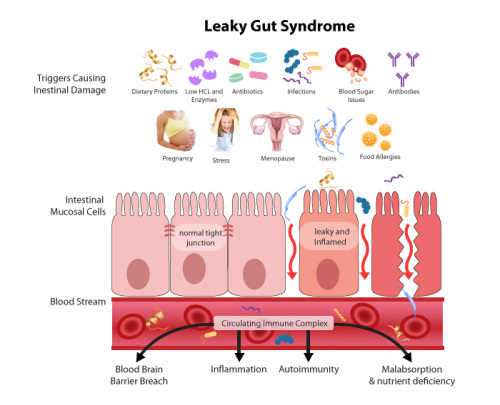Dr. Joan Delyse Waters
Northern Colorado's Naturopathic Gastro Doctor Serving Fort Collins, Windsor, Greeley, Loveland and surrounding areasCall 970-482-2010 or click here to reserve your space.
We are located upstairs in the Wellness Center at 3950 JFK Parkway #2 Fort Collins, CO 80525
Testing for leaky gut

We at Practical Health Solutions, LLC have the ability to test for intestinal hyper-permeability, otherwise known as leaky gut.
One of the panels that I use tests for antibodies to actomyosin, occudin, zonulin and lipopolysaccharides. The levels of one or more of these will be elevated if the gut is hyper-permeable.
There is also a less-invasive urine test that involves taking a first morning urine sample, then drinking a lactulose/mannitol solution, and following it up by collecting urine for 6 hours after ingesting the solution. A sample of the urine is sent in to the lab to measure the amounts of lactulose and mannitol, which will give us the information we need to determine whether the patient has leaky gut and/or malabsorption.
My preferred method of testing for intestinal hyper-permeability is to test the blood for IgG, IgA food sensitivities and sometimes IgE, which would indicate a true allergy. With the results of these tests, we can identify to which foods the patient reacts and whether they have leaky gut. With this information, I can customize an anti-inflammatory diet for this patient, which will be a crucial piece in the healing of their gut and for their overall health and well being.
Quite often, when a comprehensive stool test reveals intestinal inflammation and the patient has many of the symptoms of leaky gut, we don't need to test for it. If they are able to manage their symptoms by avoiding their known reactive foods, they may choose not to test. I prioritize the testing that would be useful, explain the risks of testing and not testing, and allow the patient to decide what testing they want to do.
The symptoms of leaky gut include multiple food sensitivities, excessive fatigue, low energy, insomnia, nutritional deficiencies, brain fog, arthritis or joint pain, depression, anxiety, ADD or ADHD. There is a correlation between leaky gut and autoimmune conditions such as rheumatoid arthritis, lupus, celiac disease and Crohn's disease, but the exact mechanism by which this occurs is unclear.
After treating the condition that caused the hyper-permeability (leaky gut), I put my patients on a gut-healing diet, individualized to each patient. I may add some gut-healing herbs and nutrient if that patient needs them. This is usually enough to heal leaky gut. If the patient's symptoms don't resolve, I would look for another source of inflammation in the gut that might be causing leaky gut.

